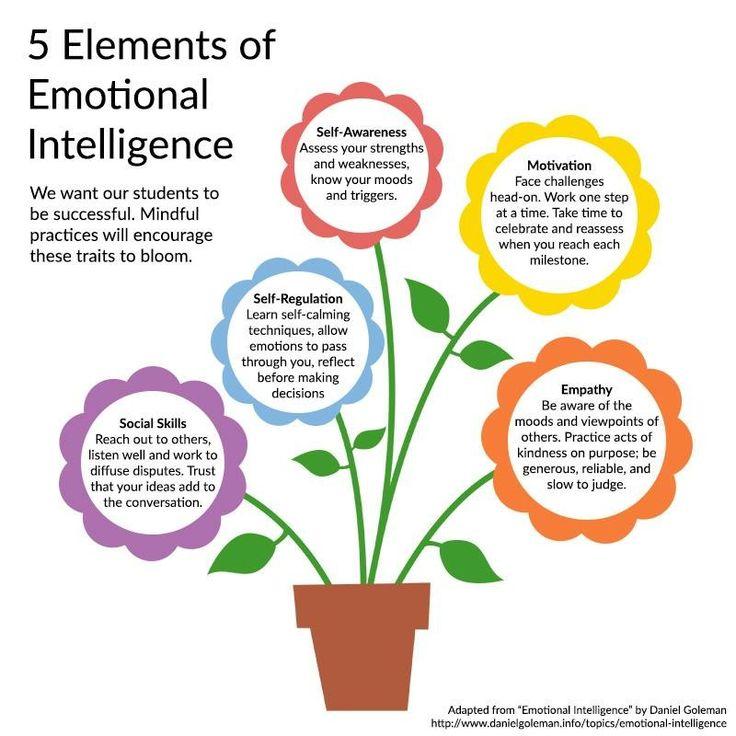Unlocking Success in Schools: The Importance of Emotional Intelligence in Education
In today’s dynamic educational landscape,academic achievement alone is no longer the sole indicator of student success. Emotional intelligence (EI) has emerged as a critical element that complements traditional cognitive skills, shaping well-rounded individuals who are prepared for life’s challenges. This article explores the essential role of emotional intelligence in education, how it underpins student success, and actionable strategies schools can adopt to nurture EI among their students.
What is Emotional intelligence?
emotional intelligence refers to the ability to recognize, understand, and manage one’s own emotions and also the emotions of others. In the context of education,EI encompasses five key domains:
- Self-awareness: Understanding one’s emotions and how they affect behavior.
- Self-regulation: Managing or adjusting emotions constructively.
- Motivation: Harnessing emotions to pursue goals and maintain enthusiasm.
- Empathy: Recognizing and responding to the feelings of others.
- Social skills: Navigating social interactions effectively, working collaboratively, and resolving conflicts.
Why Emotional Intelligence Matters in Education
Emotional intelligence isn’t just a “nice to have” skill—it’s fundamental to educational success. Here’s why EI holds such profound importance in schools:
- Improved Academic Performance: Research shows that students with high emotional intelligence perform better academically. They exhibit enhanced focus, resilience, and motivation.
- Positive Classroom Behavior: EI helps students manage behavior and minimize disruptions, creating a more productive learning environment.
- Better Relationships: Students with strong EI skills build positive relationships with peers and teachers, which boosts collaboration and mutual respect.
- Mental Health Benefits: EI offers tools to cope with stress, anxiety, and other emotional challenges commonly faced by students.
- Life-Long Success: Emotional intelligence prepares students for future personal and professional success, equipping them to adapt in an ever-changing world.
Benefits of Emotional Intelligence in Schools
Schools that prioritize emotional intelligence see transformative results, both inside and outside the classroom.
Academic Achievement
Students who learn to manage their emotions can concentrate better, leading to improved test scores and overall academic achievement. EI equips them to bounce back from academic setbacks and keep motivation high.
Enhanced Social Interaction and Collaboration
Emotional intelligence develops empathy, active listening, and communication skills—crucial for group work and peer interaction.Collaborative learning becomes more effective and harmonious.
Healthier School Environments
Fostering EI among students and staff can lead to a school culture that emphasizes respect, kindness, and inclusivity, reducing incidents of bullying and conflict.
Better Emotional well-Being
Students with strong EI are less likely to suffer from stress, depression, or anxiety, as they have effective coping mechanisms and are supported by positive relationships.
Practical Tips for Developing Emotional Intelligence in Schools
Integrating emotional intelligence into school curricula doesn’t have to be daunting. Here are practical strategies for educators:
- Implement SEL Programs: Social and Emotional Learning (SEL) curricula teach students to identify and manage emotions, build empathy, and practice responsible decision-making.
- Encourage Open Conversations: Make time for students to discuss feelings and challenges in a safe space. Encourage mindfulness sessions during the day.
- Model Emotional Intelligence: Teachers and staff should lead by example, demonstrating self-awareness, empathy, and conflict resolution in everyday interactions.
- Use Reflective Practices: Teach journaling or reflection exercises that help students process their emotions and experiences.
- Promote Teamwork Activities: Group projects and cooperative games build social skills and help students practice empathy and collaboration.
Case Studies: Emotional Intelligence Transforming Education
The RULER Program at Yale Center for Emotional intelligence
Schools incorporating the RULER approach—Recognizing, Understanding, Labeling, Expressing, and Regulating emotions—have reported marked improvements in academic performance and school climate. By weaving EI training into daily routines and lesson plans,educators noticed fewer behavioral issues and more engaged students.
CASEL’s Impact on Student Outcomes
The Collaborative for Academic, Social, and Emotional Learning (CASEL) conducted a meta-analysis of over 270,000 students in SEL programs. results showed an 11% gain in academic achievement, better behavior, and stronger emotional resilience.
First-Hand Experience: Teacher’s Perspective
“Teaching emotional intelligence has transformed my classroom. Not only do students listen and engage more, but they’ve also become empathetic supports for each other.they resolve conflicts faster, show more initiative in group work, and seem genuinely happier. Emotional intelligence isn’t just a soft skill—it’s a foundation for all learning.”
— Ms.Johnson, Middle School Teacher
Integrating Emotional Intelligence with Academic Learning
Blending EI with subject-based learning makes education more relevant and impactful. For example:
- Literature Classes: Explore character emotions and motivations to foster empathy.
- Science Projects: Encourage teamwork and communication during experiments and group work.
- Physical education: Teach sportsmanship, managing winning and losing gracefully, and teamwork.
By embedding EI into daily lessons, educators make emotional skills an active part of the learning process.
Overcoming Challenges in Implementing Emotional Intelligence
Transitioning to EI-focused education can bring challenges, but solutions are within reach:
- Lack of Training: Offer professional growth for teachers on emotional intelligence strategies.
- Time Constraints: Integrate short EI activities into homeroom, advisory, or transitions.
- Resistance to Change: Showcase success stories and positive data to foster support among staff and families.
Conclusion: Making Emotional Intelligence a Priority in Schools
unlocking student success goes beyond test scores—emotional intelligence is both the compass and the engine driving meaningful education. Schools that invest in EI foster academic achievement, nurture well-being, and prepare learners for success in the real world. As educators, parents, and policymakers, it’s vital to champion emotional intelligence and create supportive learning environments where every student can thrive.
Ready to transform your school with emotional intelligence? Empower students today, and unlock the success of tomorrow.

